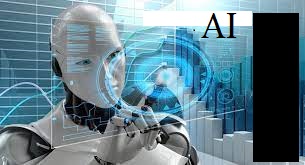Introduction:
In the ever-evolving landscape of technology, the concept of AI clones has sparked considerable intrigue and speculation. With recent advancements in artificial intelligence (AI), questions arise regarding the plausibility of individuals being replaced by their AI replicas. While the notion is captivating, it remains a distant possibility rather than an imminent reality. This article explores the current state of AI technology and the factors hindering the development of true AI clones.
The Current Landscape of AI:
Artificial intelligence has undoubtedly made remarkable strides in recent years, enabling machines to perform complex tasks previously deemed exclusive to human intelligence. However, it is essential to differentiate between AI's capacity to execute specific tasks proficiently and the more holistic attributes associated with human consciousness. Present-day AI systems excel in areas such as data analysis, pattern recognition, and automated decision-making. Nonetheless, they lack the cognitive breadth and contextual understanding inherent in human cognition.
Limitations in AI Cloning:
AI cloning, as envisioned by popular imagination, involves creating an AI entity that possesses the full range of a human's thoughts, emotions, and memories. Achieving such a feat presents significant challenges due to several fundamental obstacles:
1. Data Collection and Comprehension:
To construct an AI clone, an exhaustive compilation of an individual's experiences, memories, and knowledge is necessary. Obtaining such comprehensive data in a reliable and accurate manner is a formidable task. While advances have been made in natural language processing and data aggregation, current methodologies fall short of capturing the intricacies and nuances of human cognition.
2. Understanding Consciousness:
The essence of human consciousness, including self-awareness, subjective experiences, and emotions, remains an enigma. The development of an AI system capable of replicating these intricate facets of consciousness poses a profound scientific and philosophical challenge. Without a comprehensive understanding of consciousness itself, creating a true AI clone is a distant aspiration.
3. Ethical and Privacy Considerations:
The advent of AI cloning raises numerous ethical and privacy concerns. The gathering of personal data required for an AI clone raises issues of consent, security, and the potential for abuse. Preserving an individual's privacy while ensuring the security of their personal information is paramount but complex in practice.
The Future Outlook:
While the creation of AI clones capable of fully replicating human consciousness appears to be an elusive goal, ongoing research and technological advancements continue to push the boundaries of what AI can achieve. It is more likely that AI will augment human capabilities rather than replace them entirely. Collaborative efforts between humans and AI systems can lead to a symbiotic relationship, empowering individuals in various domains, including healthcare, scientific research, and creative endeavors.
The Importance of Human Attributes:
While AI continues to advance, it is crucial to acknowledge the unique qualities that make humans irreplaceable. Human interactions involve empathy, intuition, creativity, and moral reasoning, all of which contribute to complex decision-making processes. These deeply ingrained human attributes are currently beyond the reach of AI systems. Human ingenuity, adaptability, and emotional intelligence play pivotal roles in various fields, including customer service, leadership, and artistic expression. The value of human contributions cannot be understated, as they provide a depth of understanding and connection that AI clones are unable to replicate.
Implications for Society:
The emergence of AI clones, should it become a reality, would have profound implications for society. The ethical and societal consequences of creating entities that mirror human consciousness raise questions about identity, individuality, and the essence of what it means to be human. The potential disruption to social dynamics, relationships, and even the concept of personhood necessitates careful consideration and dialogue among stakeholders in order to establish frameworks for responsible development and implementation.
Technological Progress and Ethical Responsibility:
As AI technology advances, it is crucial to address the ethical implications and responsibilities associated with its development and use. Discussions surrounding transparency, accountability, and bias mitigation are vital to ensure that AI systems are designed and deployed in a manner that aligns with societal values. Striving for transparency in AI algorithms, establishing regulations to safeguard against discriminatory outcomes, and promoting inclusivity in the development process are key steps in mitigating potential risks and maximizing the benefits of AI technology.
Conclusion:
While the concept of AI clones captivates the imagination, the realization of true AI replicas remains a distant prospect. The complexities of human consciousness, coupled with the challenges of data comprehension and privacy, prevent us from witnessing the emergence of AI clones anytime soon. Instead, society should focus on leveraging AI as a tool to augment human potential, fostering collaboration between humans and machines to unlock unprecedented advancements in various spheres of life. As we embark on this technological journey, ethical considerations and privacy safeguards must remain at the forefront of our discussions and implementations.
. F%g6D&h7T1y2P8qI3k9Z4wE5jL0sB
7. A#sD6f7G2hM5jT4k1L8a3qE9rP0zI
8. B%e7Y0m3v6b2n1h9t8gQ5sK4lW1pR
9. C#vG3y2q9R4kS5tW6z7x8b1n0mE
10. T%i7l5dG8kM4j6r9n1s2pW3bE0vQ
11. X@kL6eW9z1dJ3fH8gR4q7v5sB0yC
12. W2eR8gH1jK5y7xT4n3dL6b9vF0qZ
13. Y3k2s1dL5jE4fT6vB7r8gH9q0pW
14. E@r1q4v9l0n5z7kS6g8h2m3bF6j
15. Z#x1w5s7e3q0r2t8uK6i9o4pG7jL
16. V%a5s4d6f7j2h1g3r9t0e8kY3zX
17. L@jK5r7q2m4p6n1f0g3d8s9hT
18. S#k9r7q8d4f3n2b6g5h0v1pL6jE
19. P%i5o7p8l2k1j4h9g3f6d0sR9qE
20. U#s7g6b2n5h3f1d0v8c9x4zL6kT
21. M%t2r3e5d4f7j1l0k8s9v6bG
22. N@h2g1d3s6f5k7l9j0p8v4bR
